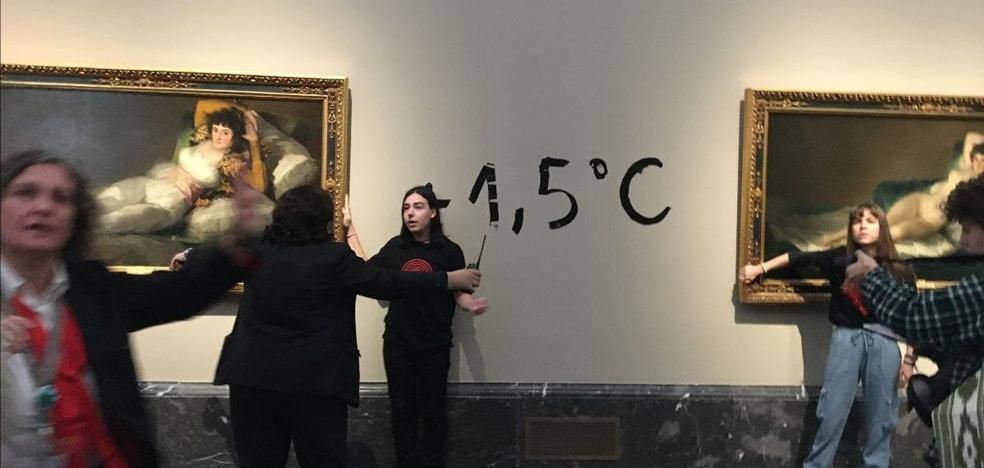The Archeology Section of the Official College of Doctors and Graduates in Philosophy and Letters and in Sciences demands that Murcian society consider archeology as a necessary value to care for, know and protect
The Board of Directors of the Department of Archeology of the Official College of Doctors and Graduates in Philosophy and Letters and in the Sciences of the Region of Murcia calls on the Murcian society to “adopt and take into account archeology as a necessary value to care for, know and protect.” He does so in a statement justifying the professionalism of the group of archaeologists in the Region: «Archaeological work must be naturalized, respected and understood as a social and economic good, with the whole society involved in its protection. and identify and adopt it as part of your history, of your estate. The last thing he needs is more dirt thrown at him.
The Dean of the Official College of Doctors and Graduates in Philosophy and Letters and in Sciences of the Region, Pedro Mora Góngora, and the President of the Department of Archeology, María del Carmen Martínez Mañogil, assure that the profession is subject to “continuous harassment and demolition” because of the “ignorance” of its operation by “some promoters, the media, certain associations claiming to defend heritage, heritage destroyers (“piteros”, “detectoristas”), labor interference and a long and so on”.
A few days ago LA VERDAD reiterated the demand of the builders of Cartagena, who miss that the processing of licenses be more flexible, as it takes a year to obtain them and their benefit is reduced. In addition, they pointed out that finding archaeological remains costs 5,000 euros for each new apartment in Cartagena. In the center of the port city, without going further, there are numerous excavated lots and lots to be excavated in places such as San Francisco Square, Escorial, Balcones Azules, Ignacio García, Palas, Cuatro Santos, Palas, Aire or Mayor streets . . In the latter, the dikes of the port of Cartago Nova, dating from the 1st century AD, are still visible on the site of the ancient Casa Llagostera. A space for which no construction project is yet known.
With regard to bureaucracy and delays in administrative procedures, the Official College of Physicians and Graduates of Philosophy and Letters and Science of the Region recalls that an intervention permit has been granted by the Historical Heritage Service to carry out an archaeological action from the Autonomous Community of the Region of Murcia (SPH) to a duly accredited professional who has previously applied for it by writing and presenting an archaeological intervention project. After the evaluation of the project (which takes about one to two months), the Directorate-General for Cultural Heritage (DGPC) issues the permit to the archaeological directorate of the works, if applicable.
“Until it is granted, it is unlawful to initiate any action on the place or space to intervene. On the other hand, promoters who want to obtain a permit must meet certain requirements, one of which, depending on the area of work, is archaeological. If they have to carry out work in an area of archaeological protection (and even more so in an urban center), the municipal authorities are responsible for properly informing them about the existing laws and regulations regarding the protection of heritage and how to act ”, the archaeologists explain.
The National Law on the Spanish Historical Heritage of 1985 and the Regional Law of 2007 also regulate these procedures, and the Town Halls create and have their own Special Protection Plan, which also includes a list of all protected heritage assets (real, movable and intangible) and their different degrees of protection. When the municipal authorities grant a building permit of any kind on a site with possible archaeological remains, one of the mandatory clauses that permit has is the archaeological action. This is also reflected in various reports that are sent to the promoter: those of the administration and those of the professional who will be present at that intervention.
With regard to budgets, the group of archaeologists represented in this Professional Association indicate that the estimate for Archeology is one of the lowest to be found, “when taken into account, as it is simply ignored on countless occasions.” “This means that when the clauses are really taken seriously and they want to start the earthworks, the blame lies with archaeology, who accuse the said professionals of delaying the work and wanting to collect items that were not captured in the price chart, simply a result of poor management by the promoter, who sometimes does not know the procedure very well,” says dean Pedro Mora Góngora. “Sometimes professionals have to reduce their own budget so much that the profit margin is sometimes very low or in many cases non-existent, they are always accused of raising money that was not intended for them, when the economic impact could have been assessed from the start with all the prior information provided for the preparation of the project”.
In this sense, they indicate that the economic effect that archaeological work can have on a work “is quite scant compared to the substantial benefit gained in the world of real estate speculation, not to mention the tax and construction benefits in working with archaeological remains.” Therefore, in this statement, the entity states that “archaeology is by no means a hindrance to urban development, but on the contrary, enriches it and makes it more attractive when it comes to offering it.” In addition, they insist that in the case of important remains, they are preserved and integrated into the construction for you to enjoy. When this happens, tax exemptions are usually granted to the promoters, they even benefit from more heights due to the loss of the archaeological basement.
At the same time, they emphasize the development of archaeological work in itself, fieldwork. “Regardless of the inclement weather we are exposed to, we have to put up with malicious comments and even insults, value judgments from people who have no idea what is being done in that place, and constant pressure from the promoter to finish as soon as possible”.
“We are professionals, and as good professionals, our goal is to do our job well while trying to adapt to the required pace, always under ethical and professional principles,” they emphasize. Laboratory work, that is, the in-depth examination of everything found during the procedure [estudio de materiales (cerámicas, vidrios, elementos metálicos, arquitectónicos,…) muros, pavimentos, y un largo etcétera] it is also the job of the professional and can take months. The results are also required by the DGPC.
For all these reasons, archaeologists believe that the results of their work have an impact on society “in the form of knowledge and as a major tourist attraction”. And they cite Cartagena as an example, whose image and economy are fully linked to its archaeological heritage. “Archaeological work must be naturalized, respected and understood as a social and economic asset, with the whole society involved in protecting it, identifying and accepting it as part of its history, of its legacy. The last thing he needs is for them to throw more dirt over him,” they insist.
Source: La Verdad
I am David Jackson, a highly experienced professional in the news industry. I have been working as an author at Today Times Live for over 10 years, and specialize in covering the entertainment section. My expertise lies in writing engaging stories that capture readers’ attention and deliver timely information about the latest developments.



